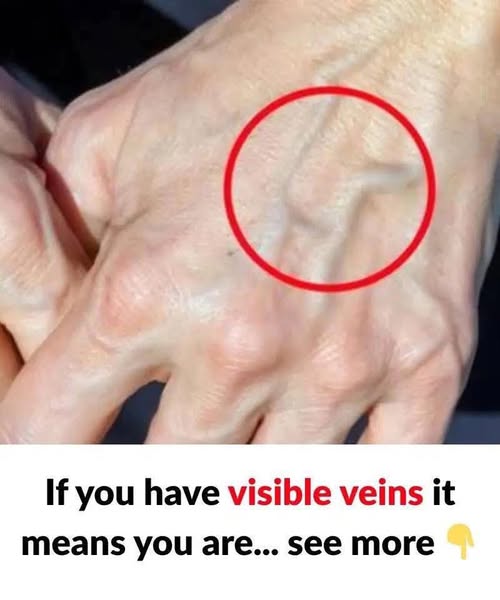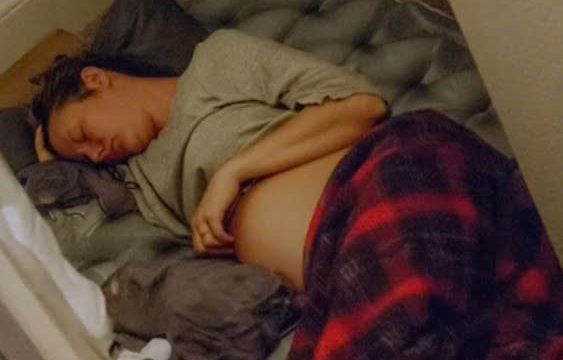Noticing veins suddenly becoming more visible on your hands, arms, legs, or chest can be surprising, especially if they seem to appear out of nowhere. For most people, this change is harmless and linked to natural factors like aging, genetics, or temporary shifts in body composition. However, there are times when these prominent veins might be signaling something more serious, so it’s important to understand when to pay attention and when it’s nothing to worry about.

So, why are your veins suddenly so visible? There are several common and generally non-concerning reasons for this. One of the main causes is lower body fat. Fat acts as a cushion beneath the skin, hiding veins from view. When you lose weight or simply have a lean body type, those veins come closer to the surface and become easier to see. It’s a normal physical change and usually nothing to stress about. Another typical cause is exercise or strength training. During a workout, your blood flow increases and your muscles swell, pushing veins outward. Over time, if you consistently train or engage in physical activity, this effect becomes more pronounced, giving your veins a more visible, defined appearance.
Warm weather is another factor that makes veins pop. When your body heats up, your veins dilate, or widen, to help regulate temperature by releasing heat through the skin. This dilation makes veins more noticeable, so it’s common to see them more clearly on hot days. Aging plays a role too. As you grow older, your skin thins and loses elasticity, which can make veins that were always there suddenly more obvious. Hormonal changes, such as those experienced during pregnancy, menopause, or while undergoing hormone therapy, can also affect blood flow and cause veins to appear or become more prominent. All of these reasons are normal and generally not cause for alarm.
That said, there are times when visible veins might be a red flag indicating a health issue that needs attention. If veins appear suddenly with no clear trigger—like weight loss, exercise, or warm weather—it could suggest an underlying circulatory or vascular problem. If you notice pain, swelling, or warmth around the veins, this could be a sign of inflammation called phlebitis, or something more serious like deep vein thrombosis (DVT). DVT is a dangerous condition where blood clots form deep in the veins and requires immediate medical attention to prevent complications.
Another warning sign is when veins have a rope-like texture, appearing hard, twisted, or bulging. These symptoms often point to varicose veins or a clot close to the surface of the skin, known as superficial thrombophlebitis. Additionally, if you see skin irritation such as discoloration, itching, or even ulceration near the veins, it might indicate chronic venous insufficiency—a condition where blood struggles to return to the heart properly, leading to pooling in the veins. More rarely, visible veins in the chest or abdomen, especially if they have a spider-like or radiating pattern, can be a sign of serious internal issues like liver disease or certain cancers. These cases require prompt evaluation by a healthcare professional.
So, when should you see a doctor? It’s a good idea to schedule a medical visit if new veins appear without any obvious explanation, or if you experience symptoms like leg cramps, fatigue, or swelling. Any discomfort, inflammation, or warmth around the veins is also a signal to get checked out. Even if you’re just concerned about how your veins look and want peace of mind, talking to a healthcare provider can provide clarity and reassurance.
In most cases, seeing your veins a bit more clearly isn’t a problem—it’s simply your body’s natural response to certain changes. But paying attention to other symptoms or sudden changes can help catch potential issues early on. Trusting your instincts is important; if something feels off, don’t hesitate to reach out to a medical professional. A quick exam can go a long way in protecting both your health and your peace of mind, ensuring you get the care you need before minor concerns turn into bigger problems.





